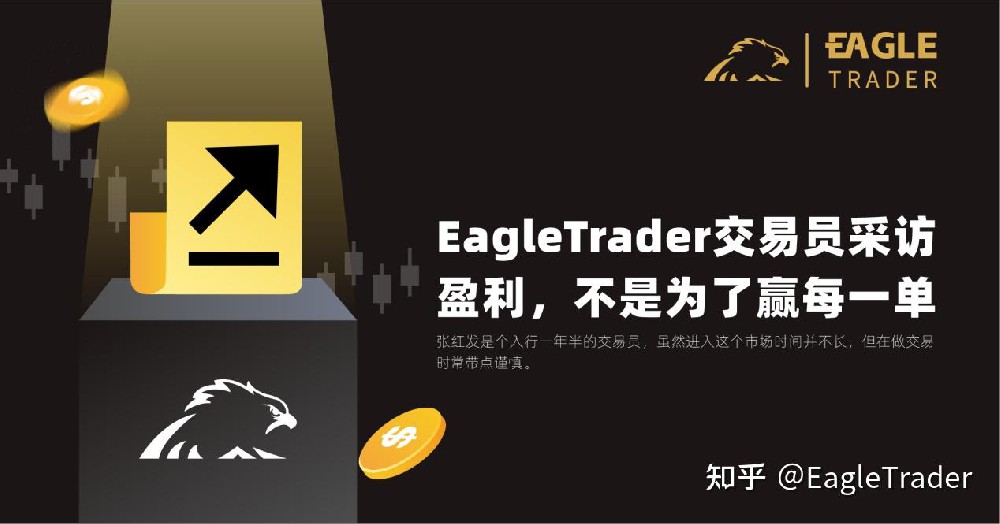EagleTrader Trader Interview | Profit, not to win every order
- 2025年6月27日
- Posted by: Eagletrader
- Category: News
“As for trading, you can’t always think about winning every move.”

Zhang Hongfa is a trader who has been in the industry for one and a half years. Although he has not been in this market for a long time, he is often a little cautious when trading. He was not in a hurry, nor did he pretend to be a “veteran”. He said he likes trading and felt that this was something he was really willing to invest in for a long time. After passing the exam, he decided to do his profit-sharing account as a full-time career.
But he didn’t hide the fact that the real “turn” actually happened after a liquidation.
At that time, he didn’t understand the importance of stop loss. The amount in the account evaporated within one day, and he was completely confused. After that time, he realized that without risk control, the market would not give people a second chance.
The awareness brought by losses
Later he reflected that frequent trading and in and out as he pleased may be the root cause of the liquidation. He began to try to build a system of his own. Slowly, he chose to lock his strategy on the 4-hour band operation. “I used to do all levels, but later I realized that this is impossible to stabilize.”
For him, the essence of stable profits is never “trying to guess the direction as far as possible”, but optimizing the profit and loss structure. He said it very directly: “You can’t win every time, so try to win more and lose less. As long as one order profit can cover the losses of the previous orders, the account can steadily rise.”
He broke down his trading decisions into three parts: 20% of the fundamentals – forecasting of the wind before the release of international news and big data; 30% of the technical analysis – trend, resistance, and pattern recognition; the remaining 50% are experience.
Experience is a grinding understanding.
Once, he added a heavy position, and the market fluctuated violently, and his account suffered serious floating losses at one point. There is still a long time before the “exit plan”, but he did not resist, but instead took the initiative to reduce his position, slow down his emotions, re-examine the plan, and then started over from a small position. “I told myself that as long as I am alive, there is still a chance.”
He said that the risk of each transaction is controlled within one-tenth of the total funds – he gave himself a “risk-bearing score” of 100 points, and on average, only less than 10 points were given each time. “Control positions and wait for opportunities. The market does not occur every day.”
What he fears most is the “one-hour up and down jump” of the market, that is, fake fluctuations in short-term fluctuations. In contrast, he prefers “large fluctuations after the oscillation”, with direction andThe rhythm is worth betting.
No order is made by luck
“I don’t think any order is made by luck, because I don’t believe that someone will always be so lucky. All orders are the result of executing the plan.”
Planning is what he values most in trading today. He has to set rules before entering the market; and if the market changes suddenly, he also allows to correct the plan – but he never completely leaves the system to “make a decision”.
He smiled and said, “The biggest gain for me in this exam is that I still have a lot to learn from a qualified fund broker, especially the mastery of risk control.”
For the traders who participated later, Zhang Hongfa traders gave some advice. He said, don’t rush to achieve success and always put risk control first. A small position, being able to short positions and not trading frequently are the three points he wants to emphasize the most.
Finally, he added:
“There is another very important thing. You must combine international news and data to judge the general direction, and then make a trading plan, control positions, set stop loss, and the rest is patience.”
For Zhang Hongfa trader, trading is not just about entering and leaving the market, but also about persisting in his own rules again and again.
In this environment where more and more emphasis is placed on risk control and practical capabilities, he feels that the most worthwhile gain is to be able to polish a system that truly belongs to him in the simulation and real-time environment. As long as the system is still there, the opportunity will always come again.
